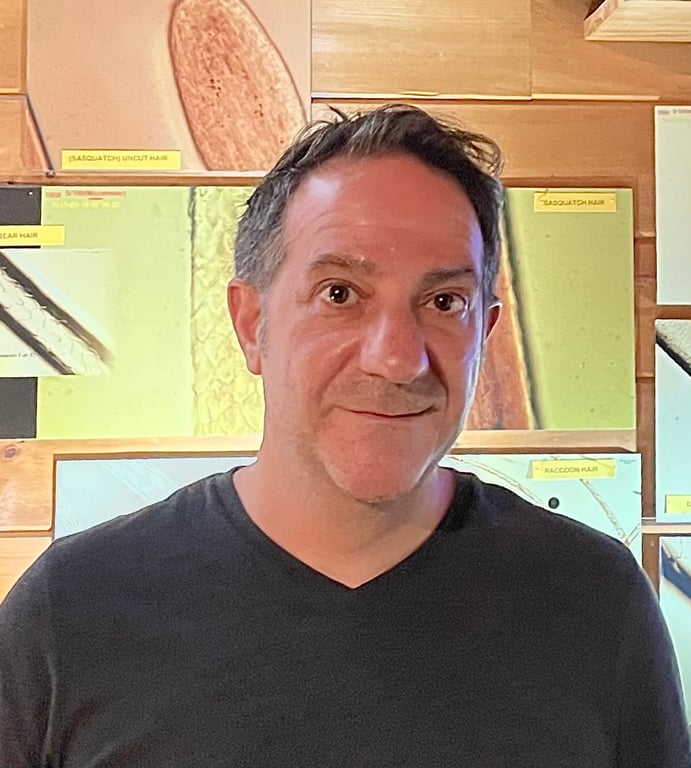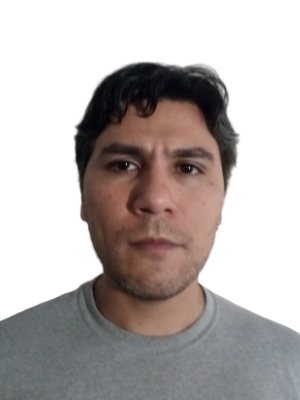About
The course trains students to become independent researchers in an area of the natural, mathematical, or computational sciences, contributing original knowledge in their chosen discipline. The doctorate program develops skills in critical thinking, analysis, research, project management, and writing. Students gain a sophisticated, cutting-edge knowledge of their research specialty. The Venture Science track in the programme emphasises science-based entrepreneurship, wherein students learn how to launch and run a science- based startup, and how to bring scientific innovations to market. Additionally, the focus is on deep tech projects—that is, projects dependent confronting significant scientific or engineering challenges—in areas such as agriculture, computation, climate, and pharmaceuticals.
How students have found success through Woolf
Course Structure
About
In this module, the aims of the methodology module are fulfilled and the research of the past two years is brought into one overarching argument.The exact length of the thesis will vary by method and discipline, but ordinarily will not exceed 80,00-100,000 words, exclusive of any appendices.The thesis will constitute a substantial, original, independent piece of research, which is clearly articulated in relation to the primary evidence and secondary literature, and which is organised in relation to the planfirst envisaged in the methodology module.
Teachers





Intended learning outcomes
- A comprehensive overview of the most important primary and secondary literature in the field of enquiry
- Expert knowledge at an MQF 8 level of the topic addressed in the thesis.
- Key theoretical, methodological, or historiographical debates for the field of enquiry
- The different types of textual and non-textual evidence used for the field of enquiry
- Assessing, analysing and critiquing primary sources and secondary literature
- Understanding and applying standard modern conventions concerning the presentation of scholarly work and scholarly referencing.
- Applying historical and critical approaches to the interpretation of primary and secondary sources in such a way as to make a genuinely new contribution to knowledge
- Comparing different approaches to the designated field of enquiry and make critical choices between them
- identifying a specific, unique, and well-scoped domain of research enquiry for the proposed thesis
- Delivering a thesis in a structured, well-scoped, and orderly way
- Summarising a wide-ranging body of information from multiple sources;
- Justifying the choice of pursuing a research topic according to a specific scholarly methodology fitting to a domain of enquiry.
- Demonstrate practical skills in gathering information from a variety of primary and secondary sources and in applying it to specific disciplinary questions
- Grasp the theoretical issues that affect the proposed field of enquiry and the relative strengths and weaknesses of alternative approaches in the secondary literature
- Conduct a programme of research that contributes to professional knowledge.
- Manage complex, sustained research on a problem in the natural or mathematical sciences, and develop new interpretive strategies
About
Advanced Research Progress and Progress Review helps a student whohas just completed the ‘Research Plan’ to undertake a cadence of supervised, original research leading to a substantial portion of their research thesis being completed (2-4 chapters or equivalent).
Teachers





Intended learning outcomes
- Specialised knowledge of key strategies related to research methods in a specific technical discipline.
- Critical knowledge of methodological debates in a technical research discipline.
- Critically understanding of the diverse scholarly views on specific methodological approaches in the natural or mathematical.
- Autonomously gathering material and organising it into a coherent presentation or essay.
- Proposing appropriate solutions to complex and changing problems pertaining to methodology in the natural or mathematical sciences.
- Assessing, analysing, and criticising the various strategies for handling matters arising in the context of natural or mathematical sciences research methods.
- Applying an in-depth domain-specific knowledge and understanding to selecting and defending a research method in the natural, mathematical, or computational sciences.
- Employing the standard modern conventions for the presentation of scholarly work and scholarly referencing
- Comparing and evaluating the different methodologies recommended in scholarly sources pertaining to how researchers should settle interpretative questions.
- Create synthetic contextualised discussions of key scholarly debates in a chosen discipline
- Apply a professional and scholarly approach to research problems pertaining to qualitative and/or quantitative methods in a scholarly discipline.
- Solve problems and be prepared to take leadership decisions related to the methods and principles of research.
- Act autonomously in identifying research problems and solutions related to advancing knowledge in the natural and mathematical sciences.
- Demonstrate self-direction in research and originality in solutions developed for creating knowledge in the natural or mathematical sciences.
- Efficiently manage interdisciplinary issues that arise in connection to methods in the natural or mathematical sciences
About
This module prepares a student to contribute new knowledge toscholarship in the sciences, particularly the mathematical or computational sciences, such that they can conduct (in subsequent modules) a programme of original, publishable research that advances the state of knowledge in their chosen field.
Teachers





Intended learning outcomes
- Critically understand the diverse scholarly views on methodological paradigms. This understanding forms the basis of an original research question.
- Develop a comprehensive knowledge of received critical or scholarly paradigms beyond that associated with Master’s-level study.
- Develop a specialised knowledge of key strategies related to the analysis of critical paradigms or methodologies.
- Assessing, analysing, and criticising the various strategies for handling matters arising in the context of critical paradigms and methodologies.
- Employing the standard modern conventions for the presentation of scholarly work and scholarly referencing.
- Applying an in-depth domain-specific knowledge and understanding to the evaluation of critical paradigms, and using this understanding to advance research questions.
- Communicating to specialist and nonspecialist audiences about the conclusions of state-of-the-art scholarly research.
- Comparing and evaluating the different methodologies recommended in scholarly sources pertaining to how scholars should handle critical paradigms.
- Proposing appropriate, well-scoped solutions to complex and changing reception of methodological paradigms.
- Manage interdisciplinary issues that arise in connection to each methodological paradigms within each field.
- Demonstrate self-direction in research and originality in solutions when engaging scholarly disputes.
- Create a research-based approach to a discipline-specific (or interdisciplinary) problem, integrating knowledge from new research.
- Design a scholarly project that conforms to contemporary standards around research ethics.
- Apply a professional and scholarly approach to research discipline- based problems.
- Solve problems and take independent decisions related to the methods and principles of research, including scheduling and prioritizing research activities.
- Act autonomously in identifying research problems and solutions related to at least one critical paradigm in the course, and can map these to a timeline.
Entry Requirements
Application Process
Submit initial Application
Complete the online application form with your personal information
Documentation Review
Submit required transcripts, certificates, and supporting documents
Assessment
Note: Not required by all colleges.
For colleges that include this step, your application will be evaluated against specific program requirements.
Interview
Note: Not all colleges require an interview.
Some colleges may invite selected candidates for an interview as part of their admissions process.
Decision
Receive an admission decision
Enrollment
Complete registration and prepare to begin your studies
.avif)










